An economy that works for workers
25 August 2025
Zaneta Mascarenhas MP
House of Representatives, Parliament House, Canberra
Adjournment
I think that it's useful to highlight that the Albanese Labor government has been doing a phenomenal job when it comes to the budget. I might remind the Member for Lindsay that we have delivered two budget surpluses and we've been doing some really responsible work when it comes to looking at the way that we rein in spending. We have delivered quite a lot of dividends looking at where we can cut waste. I don't think that that happened in some of the last few budgets that the coalition delivered.
But that is not the reason why I'm standing here today. I'm here to talk about what it's like to grow up in the Goldfields and that sometimes out in the Goldfields people don't talk about the things that are most important to them. That's because sometimes words are cheap and sometimes there are some people that are people of very few words but of tremendous substance. So, rather than speak about what's important, these people show you what's important. Often one of the things that's most important in regional Australia is having access to a secure and stable job. When I tell people that I was born in Kalgoorlie and grew up in a nickel mining town called Kambalda, it opens doors that you can't imagine. I think it's because people are surprised that I grew up in a town where you don't just get red dirt under your fingernails; you get it all throughout your car, under the car body and on your mud flaps.
Western Australia is a resource-rich state, but mining looms large and the boom-and-bust cycles can be bad. When the highs are high, it's great, but, when the lows are lows, it's very challenging. For many of our skilled workers—tradies, electricians, engineers and geologists—Australia's economic cycles and whether global demand is up or down have been a fact of life. Hometowns like Kambalda struggle when global shocks rattle, like the nickel price did. You fly in one day and fly out the next. You drive in one day and drive out the next. That's FIFO and DIDO work. But guess what? Pre-COVID thinking is not coming back. Do you know what the pandemic did? It forced us to imagine, 'If we can't make it here, there might be times when we don't actually get to have it here.'
It's for these reasons that I'm backing a future made in Australia, because we need to diversify Australia's economy. We can do that by investing in manufacturing because this will help stabilise the regional boom-and-bust cycles, help local economies, create steady employment and foster linkages with other sectors—or, as my old man would say, 'Don't put all your eggs in one basket.' The golden goose may stop laying golden eggs one day or, as a mate would say, 'We need to diversify, baby!' To diversify, what we need is skilled labour and strong governance. The need for skilled labour is obvious, and I'm proud to be part of an Albanese Labor government that backs fee-free TAFE, which we have put in legislation. We have also taken 20 per cent off people's HECS debts.
The need for strong governance is another way of saying 'strong leadership'. This does not mean picking winners or the state doing everything, but it does mean setting a goal and mobilising policy. The point is that the government should be taking steps that are in the national interest and in the best interests of working people. We should value contributions on what's happening currently but also what can happen in the future. There are so many stories where we can do this.
I remember one of my girlfriends who I studied chemistry and chemical engineering with went through her third redundancy during the downturn. She got really exhausted from being made redundant during the boom-bust cycles, so she decided that she'd go work in aged care.
We have this challenge where we're not just trying to diversify our economy; we're also trying to diversify the workforce. What I would say is that things like fee-free TAFE and the Battery Breakthrough Initiative that we announced recently will diversify Australia's economy, making sure that we can endure the boom-bust cycles of global prices. This is what can happen when we have a government that not just backs our workers but also backs industry, because we want a future made in Australia.
